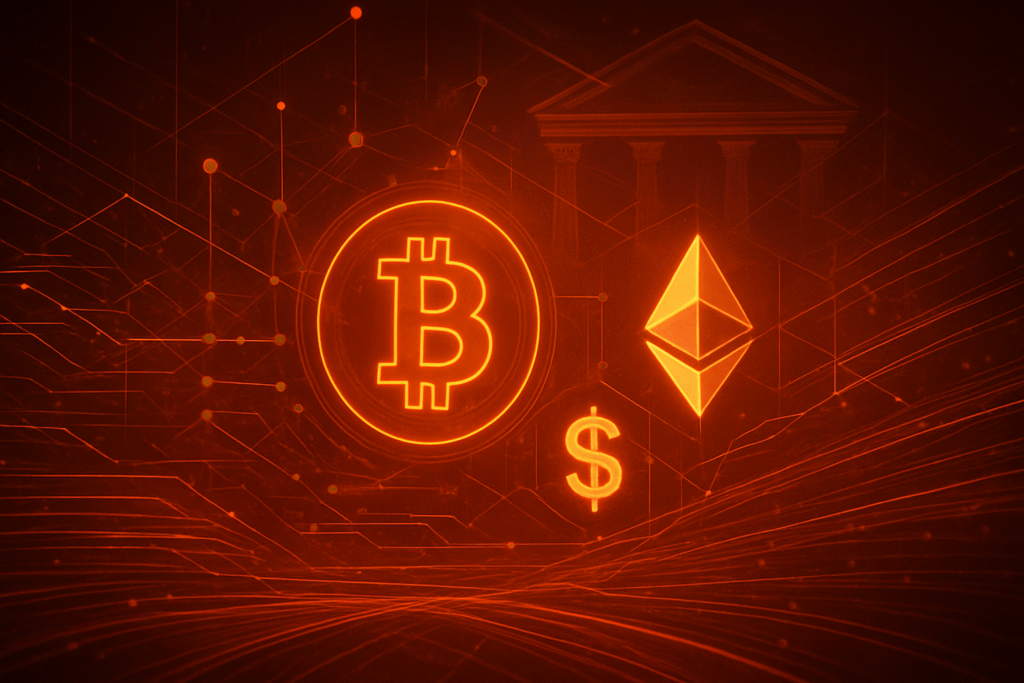
Washington D.C., October 27, 2025 – The cryptocurrency world is reeling from revelations linking Binance, the world's largest crypto exchange, to a Trump family crypto venture, World Liberty Financial (WLFI), which allegedly preceded President Donald Trump's pardon of Binance founder Changpeng Zhao (CZ) on October 23, 2025. This confluence of events has ignited a fierce debate about political influence, regulatory integrity, and the future of the digital asset landscape, sending ripples of uncertainty through an already volatile market.
The pardon of CZ, who had previously pleaded guilty to violating U.S. anti-money laundering (AML) laws and completed a four-month prison sentence by September 2024, has been met with both fervent support from crypto advocates and scathing criticism from lawmakers and ethics watchdogs. Allegations surfaced throughout 2025 detailing Binance's supposed provision of foundational code for WLFI's stablecoin, USD1, administering a trading platform for the venture, and facilitating a significant $2 billion investment into Binance using USD1. These developments, coupled with the Securities and Exchange Commission (SEC) dropping its lawsuit against Binance in May 2025 just days after the USD1 listing, have fueled claims of a potential quid pro quo, raising profound questions about the impartiality of regulatory enforcement and the growing intersection of politics and finance in the Web3 ecosystem.
Market Impact and Price Action
While direct, immediate price action specifically tied to the pardon itself has been difficult to isolate amidst broader market trends, the preceding regulatory developments related to Binance and WLFI undoubtedly influenced market sentiment. The May 2025 decision by the SEC to drop its lawsuit against Binance, coming shortly after Binance listed WLFI's USD1 stablecoin and the announcement of a $2 billion investment by Emirati state-backed MGX using USD1, likely provided a significant, albeit temporary, relief rally for Binance's native token, BNB, and potentially the broader altcoin market. This move was perceived by many as a reduction in regulatory pressure on a major industry player, fostering a sense of cautious optimism.
However, the recent pardon and the controversial circumstances surrounding it could introduce a new layer of political risk premium into crypto asset valuations. Investors may now factor in the potential for politically motivated regulatory decisions, both favorable and unfavorable, when assessing the stability and long-term prospects of major platforms. Trading volumes for BNB and other associated tokens might see increased volatility as market participants digest the implications of such high-profile political interventions. Technical analysts will be closely watching key support levels for BNB, as any perception of diminished regulatory oversight due to political maneuvering could, paradoxically, lead to increased scrutiny from other jurisdictions or a loss of institutional trust in the U.S. regulatory environment. This event could be compared to past instances where political decisions, rather than fundamental market forces, significantly altered the trajectory of specific assets or the overall market, emphasizing the growing importance of geopolitical factors in crypto investing.
Community and Ecosystem Response
The reaction across the crypto community and broader Web3 ecosystem has been sharply divided. On one side, many crypto enthusiasts and influencers have hailed the pardon as a victory against what they perceive as a "war on cryptocurrency" by the previous administration, echoing the White House's statement that President Trump was "upholding America's commitment to fairness, innovation, and justice." Changpeng Zhao himself took to X, expressing profound gratitude and pledging to help "make America the Capital of Crypto," a sentiment widely celebrated by those who view his prosecution as an overreach. This perspective often emphasizes the need for regulatory clarity and a more innovation-friendly approach to digital assets.
Conversely, the pardon has drawn intense condemnation from a significant portion of the community, particularly from those concerned about ethical governance and regulatory integrity. Democratic lawmakers, including Senator Elizabeth Warren, swiftly denounced the pardon as "corruption," explicitly linking Zhao's guilty plea, Binance's alleged support for the Trump family's crypto venture, and the subsequent lobbying efforts to the presidential clemency. Prominent academics and ethics experts, such as Cornell University economics professor Eswar Prasad, have openly suggested the pardon appears to be a "quid pro quo." Discussions across crypto Twitter and Reddit are rife with debates over whether this event signals a dangerous precedent where political connections can influence legal outcomes, potentially eroding trust in the U.S. as a fair and transparent regulatory environment for digital assets. While there's no direct impact on specific DeFi protocols or NFT projects mentioned, the broader sentiment regarding regulatory capture could subtly influence investor confidence in the long-term viability and ethical standing of the entire Web3 space.
What's Next for Crypto
The pardon of Changpeng Zhao, intertwined with allegations of Binance's aid to a Trump family crypto venture, marks a significant inflection point for the crypto industry's relationship with political power. In the short term, the event is likely to intensify the debate around regulatory oversight and political lobbying within the digital asset space. Expect increased scrutiny from lawmakers and media on the financial dealings between crypto entities and political figures, potentially leading to calls for stricter disclosure requirements or new legislation aimed at preventing perceived conflicts of interest. For the crypto market, this could mean heightened volatility as political headlines continue to influence sentiment.
In the long term, this incident could shape the future regulatory landscape, potentially accelerating efforts to establish clear, comprehensive frameworks for digital assets, but with an added layer of political considerations. Projects and investors will need to factor in political risk more prominently in their strategic planning, understanding that regulatory outcomes may not always be purely merit-based. Potential catalysts to watch include further investigations into the alleged connections, upcoming elections that could shift the political landscape, and the global response from other regulatory bodies assessing the U.S. approach. Scenarios range from a tightening of regulatory enforcement to restore public trust, to a continuation of politically influenced decisions, potentially creating a bifurcated market where political alignment plays an increasingly critical role.
Bottom Line
The pardon of Changpeng Zhao amid revelations of Binance's alleged support for a Trump family crypto venture underscores the undeniable and increasingly complex intersection of cryptocurrency, politics, and regulation. For crypto investors and enthusiasts, the key takeaway is that the industry is no longer operating in a purely technological or market-driven vacuum; political influence and lobbying efforts are now potent forces shaping its trajectory. This event highlights the critical importance of monitoring not just market fundamentals and technological advancements, but also the political currents in Washington and beyond.
The long-term significance of this incident cannot be overstated. It sets a precedent that could embolden other crypto figures to seek political avenues for legal relief, while simultaneously fueling public skepticism about the integrity of the regulatory system. The debate over whether this represents a "war on crypto" or a "war on corruption" will continue to rage, but its implications for crypto adoption are clear: trust, transparency, and perceived fairness will be paramount. Important dates to monitor include any further disclosures regarding World Liberty Financial (WLFI), future legislative proposals related to crypto and political lobbying, and the evolving rhetoric from political figures concerning digital assets. This saga reinforces that navigating the crypto landscape now requires a keen awareness of both code and corridors of power.
This article is for informational purposes only and does not constitute financial or investment advice. Cryptocurrency investments carry significant risk.






